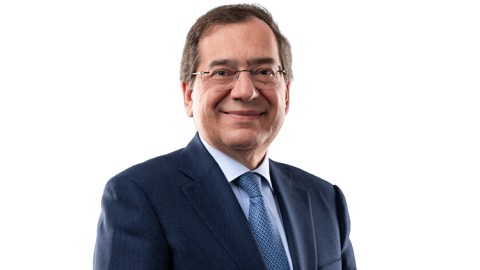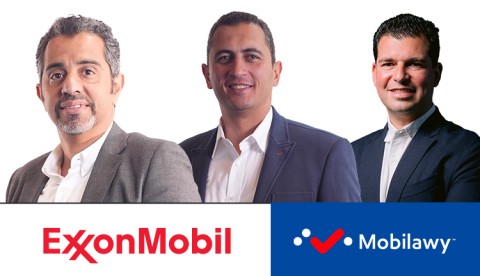The EGYPS 2023 Technical Conference provided the industry’s oil and gas professionals with an unrivaled opportunity to meet face-to-face and learn how to stay technically relevant, digitally competitive, and business resilient, fully embracing the constantly evolving market landscape. The conference program covers subjects from exploration and field development to HSE, digitalization, petrochemicals and biofuels – featuring a wide array of topics that are useful for any professional who wants to keep up with current developments in their specialized field.
The Technical Conference involved 19 technical categories and a thorough two-stage Technical Committee review, comprising over 80 industry specialists. In EGYPS 2023, the technical program features over 180 experts speaking at 45 sessions.
Carbon Emissions Reduction
Under the subject of “Reducing Carbon Footprint and Green House Emissions,” a technical session was launched involving four insightful presentations on the importance of carbon emissions and what could be done to address this issue. The first presentation titled “A Pragmatic Transition to Net Zero Energy Production” addressed the ever-growing need to transition to net zero energy production. During the discussion, Yasser Gamal-Eldin from MAN Energy Solutions Egypt stressed the urgency to shift into reducing CO2 emissions, saying “CO2 emissions from power have to decline by around 60% in 2030 in order to reach net zero energy production by 2050”. In addition to the need to reduce emissions, renewables in the global electricity supply will increase to 60% by 2030.
During another presentation titled “Reducing Carbon Footprint and Greenhouse Emissions in Few Steps for Quick Results and Fast ROI”, Schneider Electric Strategic Account Executive Tiziana Paolicelli talked about what needs to be done to deliver customer-valued sustainable performance by 2025. These objectives include a “100% substitution with SF6-Free medium voltage technologies [and an] increase the green material content in our products to 50%.”
Furthermore, the third presentation, which witnessed the participation of Babcock Wilcox Managing Director Wassim Moussaoui, addressed the topic of “Considerations When Co-Firing Hydrogen with Natural Gas or Oil for Carbon Emission Reduction”. He mentioned that “Industrial facilities can improve their carbon footprint with the use of non-carbon-based fuels. But to achieve that, a comprehensive evaluation of the overall combustion system is needed to achieve a safe and successful transition to non-carbon-based fuel firing.”
Finally, in the fourth presentation titled “Net Zero Carbon Intelligent Campus” delivered by Mostafa Hazem, Solution Director – Oil & Gas Sector for North Africa Region, Huawei, discussed key decarbonization and energy transition methodologies. “From Huawei’s perspective; the methodology to achieve energy transition relay on three main aspects which are: net zero transformation, energy transformation, and digital transformation,” said Hazem. “The best-case scenario is to balance between these aspects to achieve a net zero smart industrial campus,” he added.
Towards a Sustainable Petrochemical Industry
The second day of the EGYPS Technical Conference witnessed a technical session called “Towards a Sustainable Petrochemical Industry. Through four very informative presentations, it discussed the future of petrochemicals, exploring the role of the industry in today’s energy sector.
The first presentation was by Mohamed Abdel Atty Ahmed, Ammonia and Utilities Plant Manager at Misr Fertilizers Production Co. (MOPCO), titled “Recovering the Activity of Ammonia Synthesis Catalysts”. Abdel Atty gave an overview of his company and its activities in the Egyptian and international markets. He discussed how his company’s team tried to recover the ammonia production due to the decline of ammonia synthesis by optimizing the parameters of the catalyst. “The catalyst maintains a very good activity that is even better than expected after 14.3 years of service,” he concluded.
The second insightful presentation titled “OPEC World Oil Outlook (WOO 2022)”, was given by Mohammed Attaba, Downstream Oil Industry Analyst at the Organization of the Petroleum Exporting Countries (OPEC). He provided an overview of oil, gas and petrochemicals demand in the global scene and the required investments. Attaba said that “global gross domestic product (GDP) is projected to increase by 3% per annum on average, rising from around $133 trillion in 2021 to almost $270 trillion in 2045.”Moreover, Attaba elaborated that OPEC expects lower costs for renewables and batteries. “So based on this fact, global primary energy demand is forecasted to continue growing by 23% to reach 351 million barrels of equivalent per day (mmboe/d) in 2045,” he said.
Haitham Ramadan Omara, Director of Department at Sidi Kerir Petrochemicals Company (SIDPEC) made a presentation on “Optimization of High Density Polyethylene (HDPE) Reactor Using PSDS of Chromium Catalyst”. Omara provided a study on how “to detect the appropriate particle-size distribution of chromium catalyst used for manufacturing high density polyethylene with the required properties and without exposure to high manufacturing risk by high consumption of pre-polymer or elevating the temperature of the final reactor.” He concluded that implementing these techniques can increase production at lower costs.
Manu Van Leuvenhaege, Commercial Director, Sulzer concluded with a presentation on “Pygas Maximise Petrochemicals from Your Steam Cracker.” He gave a discussion on Pygas and how to use it to maximize petrochemical production from an existing steam cracker. Leuvenhaege also presented the typical Pygas processing steps and discussed how it can help upgrade existing systems to achieve added value and decarbonization objectives. He talked about aromatics extraction stating “Using the efficient solvent is the key to reducing the carbon footprint of an aromatic extraction unit, whether it is the extractive distillation unit or liquid extraction unit.”
Role Of Technology to Achieve Operational Excellence
On the third day, several informative presentations were given focusing on production optimization by using digital and intelligent solutions. One of the amazing sessions titled “Intelligent Solutions and The Role Of Technology To Achieve Operational Excellence” featured four innovative ideas for operational excellence.
Gustavo Andres Ariza, Global Product Line Champion – Progressing Cavity Pumping Systems & COROD Continuous Rod at Weatherford delivered the first one on “More Efficiency and Less Power Consumption by Using Permanent Magnet Motor as an Optimized Surface Drive Technology for PCP Wells in a Romanian Field.” He talked about the efficiency of deploying permanent magnet motor (PMM) technology to the artificial lift system in a Romanian field as a case study. He explained how it works to save energy, costs, and reduce industrial noise. “PMM reduces noise emissions from 73.2 decibels (db) to 39.85 db, energy usage [by] 9.74%, saves $5000 in electricity and $38000 in annual OPEX,” Ariza ended.
Also, a presentation titled “Multi-phase Virtual Flow Metering: a Step Change in Production Management” was presented by Shaksham Mishra, Production Operations Engineer at Schlumberger. He discussed OLGA online production management system which uses digital twins and how it efficienctly in improves operational processes. “In a well calibrated system, the digital twin is capable of providing accurate of providing accurate flow estimates for muti-phase flow system,” Mishra said. He mentioned the various OLGA applications and how it works.
Rabih Bou Rached, CEO & Founder, FEDS drone Powered Solutions, delivered a presentation on “Inspecting Fare stack while Operational – How Drones are Increasing Flare Stack Inspection Efficiency and Reducing Downtime”. He mentioned the key role played by drones to inspect flare gas while it is operating in shorter time saving workers’ life. He explained the features of drones provided by his company. “FEDs-drone is more than a service provider. We are in the business of improving operations, saving lives, and eliminating unnecessary downtime,” Bou Rached elaborated.
A presentation called “Integrated Technologies for Improving Asset Integrity and Production Enhancement” concluded the session. It was introduced by Aarti Dange, Customer Experience Leader, Emerson Automation Solutions. She explained how integrated technologies can ensure asset integrity and overcome variable corrosion and erosion. Dange mentioned some effective technologies that enable experts to predict possible corrosions, monitor processes, and initiate quick responses to these corrosions. “[Monitoring corrosion helps] increase production by 1% because of decreased planned and unplanned shutdowns,” Dange concluded.







